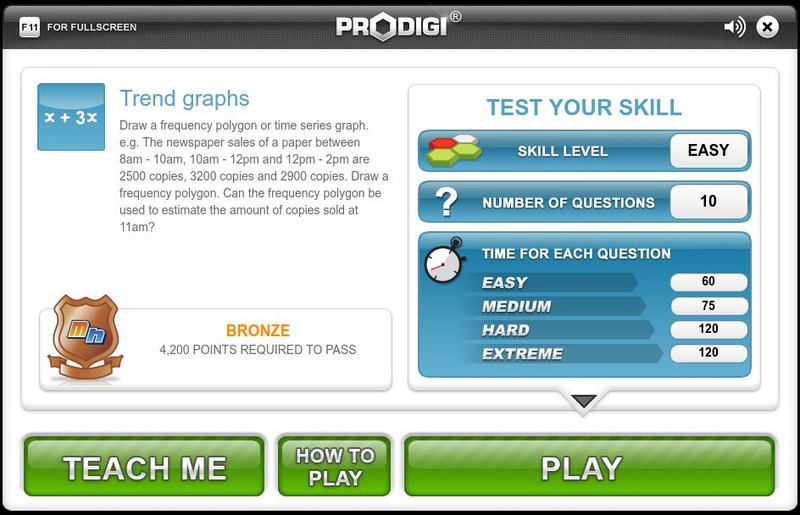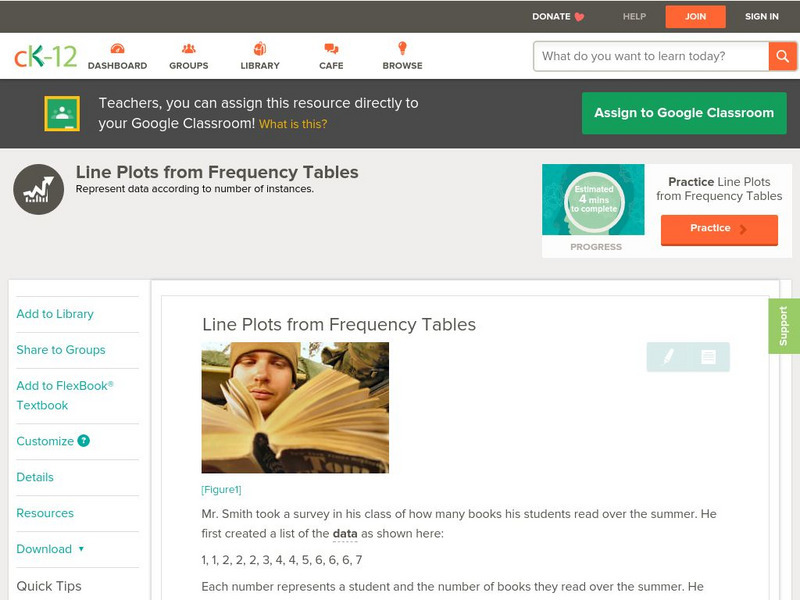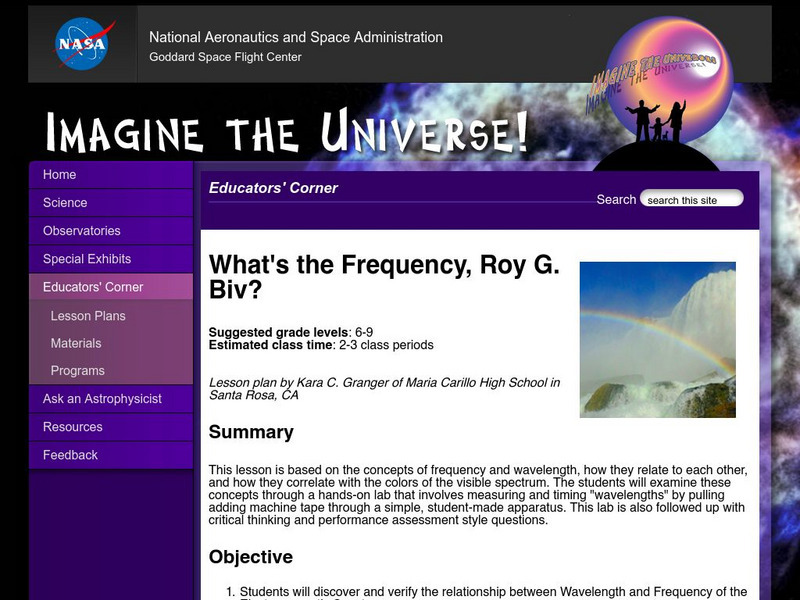University of Kentucky
The Physics and Math of Music
Read about a math research project done by three college students which helps us see physics and math in music. Here's a great approach for integrating curriculum!
University of Georgia
University of Georgia: Definitions in Statistics
This site contains definitions to use in statistics and ways to collect data.
University of Guelph
University of Guelph: Physics Tutorials: Amplitude, Period, and Frequency
A tutorial describing the characteristics of simple harmonic motion. Utilizes animations, mathematical equations, and interactive questions to teach essential principles.
Texas Instruments
Texas Instruments: Lights Out: Periodic Phenomena
In this activity, students can use a light sensor to collect intensity data for fast and slow variations of intensities. They will then describe these variations using the concepts of period and frequency.
Science Education Resource Center at Carleton College
Serc: Calculating the Speed of Sound
For this physical science lab, students will calculate the speed of sound. They will observe that the speed of sound is constant, regardless of wavelength or frequency, and see the inverse relationship between wavelength and frequency.
Science Education Resource Center at Carleton College
Serc: Investigating Sound: Using Open Tubes to Demonstrate Beat Notes
In this interactive demonstration, students will observe while the teacher creates two sound frequencies using open tube resonators of nearly identical length. The nearness in length produces two slightly different frequencies which...
PBS
Pbs Learning Media: Frequency
Frequency is how often something occurs. This interactive resource details the definition of frequency, offers demonstrations, and features examples.
University of New South Wales (Australia)
Univ of New South Wales: Musical Acoustics: Strings, Standing Waves, Harmonics
The production of a standing wave in a string is presented and discussed in this site. Exceptional diagrams are accompanied by thorough explanation and mathematical analysis to explain the various modes of vibrations.
Wikimedia
Wikipedia: Simple Harmonic Motion
Wikipedia offers great information on simple harmonic motion, including an image, formulas, and hyperlinked terms.
Wikimedia
Wikipedia: Wave
An in-depth encyclopedia article from Wikipedia on waves gives a definition for what a wave is. Other content in the article includes a list of examples and characteristics of waves, information about the difference between transverse...
Oswego City School District
Regents Exam Prep Center: Ratios and Music
The class notes examine the connections between music and ratios. An example and additional questions on the concept are included.
Other
Ucsc Electronic Music Studios: Simple Harmonic Motion
Simple harmonic motion is described and explained and related to a Helmholtz resonator. Relation between simple harmonic motion and a vibrating air column is clearly made in an effort to explain why a pop bottle resonates when blowing...
Other
The University of Salford: Sounds Amazing
This site has several lessons all about sound. It introduces sound, then covers major principles of waves and the wave equation. Each lesson has interactive activities to keep you interested, and there are even some test questions.
Other
Synthesis Definitions
Includes all different types of synthesis, including FM, additive, AM, subtractive, granular, RM, and wavetable.
Other
Dans Math: Lessons: Trigonometry
College professor Dan Bach reviews basic trig concepts, including trig functions, right triangles, circles, radians, and polar coordinates. Site includes animated graphs and detailed examples.
McGraw Hill
Glencoe: Two Way Tables [Pdf]
This portion of an online textbook provides examples of two-way tables, vocabulary and practice problems.
Scholastic
Scholastic: Study Jams! Science: Energy, Light and Sound: Sound
A video and a short quiz on how sound travels in waves, its properties, and how to measure it.
Mangahigh
Mangahigh: Data: Find the Class Interval Containing the Mode
Students watch an online tutorial on the concept of finding mode from a frequency table. After watching, students test their knowledge by attempting ten practice problems that increase or decrease in difficulty based on their answers.
Mangahigh
Mangahigh: Data: Use Frequency Tables
This site provides students practice with the concept of frequency tables. Students can learn about the topic by completing an interactive tutorial. Students can then take a ten question timed test to practice the skill.
Mangahigh
Mangahigh: Data: Trend Graphs
Students explore the concept of frequency trend graphs by working through an online tutorial and then attempting a ten question quiz that increases in difficulty as questions are answered correctly.
CK-12 Foundation
Ck 12: Statistics: Line Plots From Frequency Tables
[Free Registration/Login may be required to access all resource tools.] Create a line plot given data organized in a frequency table.
NASA
Nasa: Imagine the Universe: What's the Frequency, Roy G. Biv
In this very detailed lesson plan from NASA, students investigate wavelength and frequency within the electromagnetic spectrum.
TeachEngineering
Teach Engineering: Seeing and Feeling Sound Vibrations
Students examine the existence of sound by listening to and seeing sound waves while conducting a set of simple activities as a class or in pairs at stations. Students describe sound in terms of its pitch, volume and frequency. They use...
TeachEngineering
Teach Engineering: Pitch and Frequency
To further their understanding of sound energy, students identify the different pitches and frequencies created by a vibrating ruler and a straw kazoo. They create high- and low-pitch sound waves.











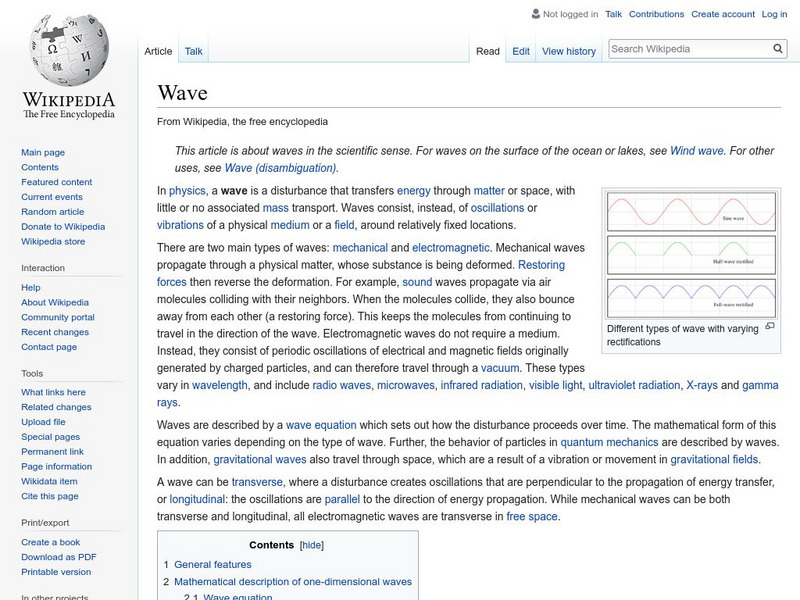

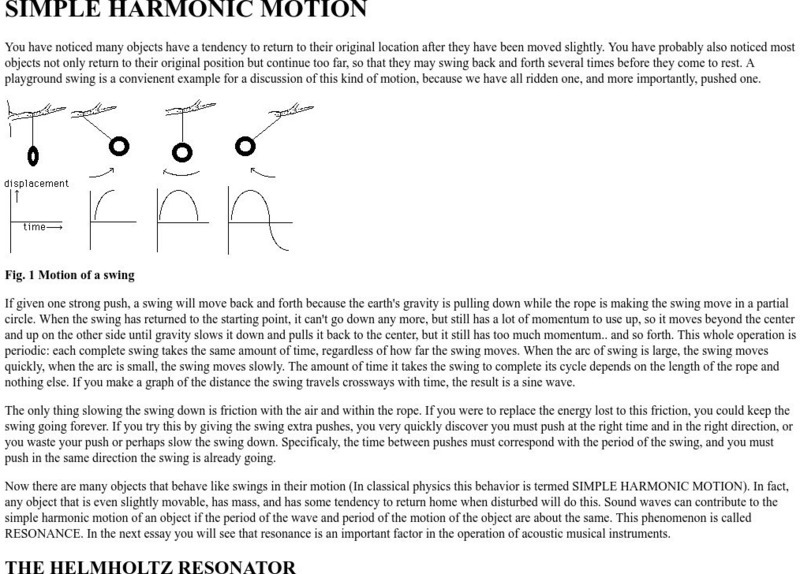


![Glencoe: Two Way Tables [Pdf] eBook Glencoe: Two Way Tables [Pdf] eBook](https://content.lessonplanet.com/knovation/original/108238-00003273f53572e51290174e1a53eb12.jpg?1661187814)



